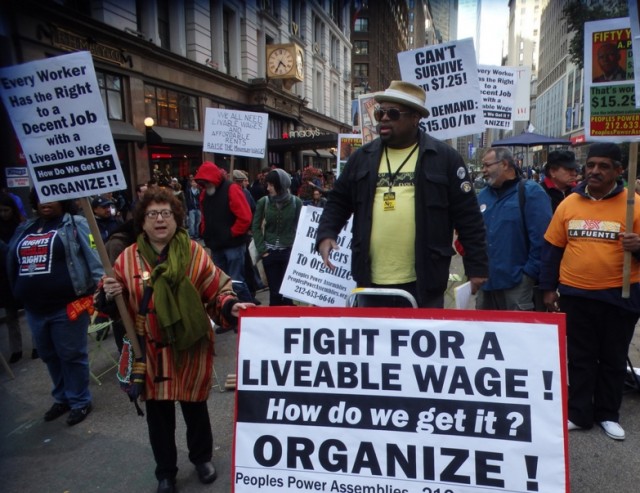
Advertisement
The conversation about minimum wage legislation continues to be one of America’s most hotly debated topics. Some argue that instead of experiencing with increasing it, we should see what happens when it’s eliminated altogether.
Donald J. Boudreaux, writing for the Foundation for Economic Education, points out that the push to increase the minimum wage is purely political and completely lacking in terms of “scientific” reasoning.
In a recent article titled “Here’s a Minimum Wage Experiment Worth Trying,” Boudreaux suggests getting rid of the minimum wage entirely “for a long stretch of time,” and then wait and see what materializes.
“Because minimum wages have been part of the regulatory scene in the United States for nearly 80 years, this experiment in eliminating the minimum wage will have to last a long time. It’ll have to last at least as long as a decade if the results of this experiment are to accurately reveal the true consequences of minimum wage legislation,” writes Boudreaux, an economics professor and former economics-department chair at George Mason University.
Boudreaux is also the former president of FEE.
Would removing the minimum wage actually even the playing field for blacks and Hispanics?
“Only if people come really to believe that the minimum wage has been eliminated and will not be reinstated anytime soon will employers and employees adjust fully to a no-minimum wage economic environment.”
Boudreaux, a minimum wage opponent, believes that over time, removing the minimum wage will improve employment opportunities for low-skilled workers and reduce inequality in the workforce.

Abolishing the minimum wage will eliminate or significantly reduce “the differences between the unemployment rates of black and Hispanic low-skilled workers and the unemployment rates of low-skilled white workers,” he says.
“We’ll see a slight reduction in the incomes of middle-class households and increases in the incomes of lower-income households. We’ll see also fewer people in their 20s and 30s who have never gained on-the-job experience and skills.”
Those results will not occur if minimum wage opponents are incorrect, says Boudreaux. However, at least then there will be a basis for minimum wages, he adds.
Running the experiment backwards
“It will not do to counter with the accurate observation that we already have a lot of empirical evidence on the effects of raising the minimum wage. First, much of this evidence suggests that the standard economic prediction holds true in reality — namely, that raising the minimum wage destroys jobs for some low-skilled workers.
“So if this evidence is to carry the day, then let us hear no more assertions that raising the minimum wage does not destroy jobs for some low-skilled workers.
“As for the other evidence — the evidence that finds no negative employment effects of minimum wage hikes — the vast bulk of this evidence comes from studies that take a minimum wage regime as a given. That is, these studies are done of economies in which minimum wage legislation already exists and, typically, has existed for a long time.”
Boudreaux explains that almost all studies that conclude minimum wage standards have no negative impact on employment reach this finding because the analysis is completed in economies where businesses have already adjusted “to the realities of binding minimum wages,” and the expectation that existing minimum wages will increase at some point.
“These empirical studies, therefore, tell us at best how employers and employees adjust to unexpected increases in existing minimum wages,” says Boudreaux.
“Because low-skilled workers and their employers (and potential employers) in America have for nearly eight decades now been burdened by minimum wage legislation, an empirical test of imposing a minimum wage on America is out of the question.
“So let’s run the experiment backwards: eliminate the minimum wage and promise to keep it eliminated for, say, at least ten years. We’ll then be able to get a much truer and fuller sense of the employment consequences of minimum wage legislation.”
Sources:
Submit a correction >>
This article may contain statements that reflect the opinion of the author
Advertisement
Advertisements















